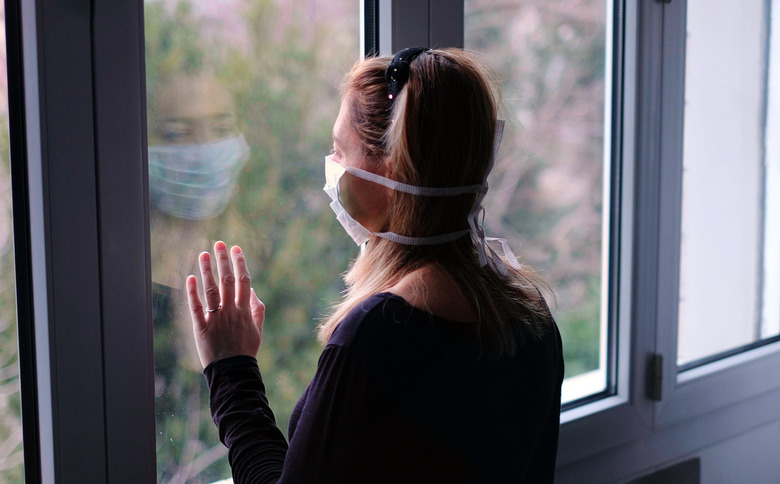FDA Just Authorized A Breakthrough Coronavirus Drug That's Proven To Save Lives
- The FDA just authorized a breakthrough coronavirus drug that has been proven to save lives.
- Known as bamlanivimab or LY-CoV555, Eli Lilly's new medicine is a monoclonal antibody drug that can block the virus from infecting cells.
- The drug has shown efficacy in mild-to-moderate COVID-19 cases and should be administered as early as possible in order to be effective. The FDA's emergency use authorization does not apply to the treatment of hospitalized COVID-19 patients.
We've often said that breakthrough drugs made to treat COVID-19 might be ready before coronavirus vaccines arrive, and things have gone more or less according to plan. Out of the various companies developing monoclonal antibodies that can neutralize the novel coronavirus's spike protein, two of them have already submitted their paperwork for Emergency Use Authorization (EUA). And now, the FDA just authorized one of them. Eli Lilly's bamlanivimab, also known as LY-CoV555 in clinical trials, has received an EUA and can be used in the US to treat COVID-19 patients beginning immediately.
Monoclonal antibodies are drugs made using the same powerful antibody that can block the coronavirus's spike protein that's used to infect cells. The drugs are similar to the neutralizing antibodies in plasma transfusions, and plasma also received an EUA a few months ago. But monoclonal antibodies make use of a more potent antibody, whereas plasma contains antibodies of varying quality. Like plasma transfusions, the monoclonal antibodies do have some limitations, and they won't save everyone. But they might prevent severe complications and further reduce the risk of death.
The FDA approved bamlanivimab for the treatment of mild-to-moderate COVID-19 cases that don't require hospitalization:
Today, the U.S. Food and Drug Administration issued an emergency use authorization (EUA) for the investigational monoclonal antibody therapy bamlanivimab for the treatment of mild-to-moderate COVID-19 in adult and pediatric patients. Bamlanivimab is authorized for patients with positive results of direct SARS-CoV-2 viral testing who are 12 years of age and older, weighing at least 40 kilograms (about 88 pounds), and who are at high risk for progressing to severe COVID-19 and/or hospitalization. This includes those who are 65 years of age or older or who have certain chronic medical conditions.
Eli Lilly said in an announcement that the drug should be "administered as soon as possible after a positive COVID-19 test and within 10 days of symptom onset." The company will begin shipping the drug to major pharmaceutical distributor AmerisourceBergen, which will then supply it according to the US government's allocation program.
Lilly has conducted a few separate studies on bamlanivimab. The Phase 2 stage of the Blaze-1 trial has shown that the drug helped prevent complications that would have required hospitalization.
The drug has to be administered intravenously in a single dose of 700mg, so this isn't the kind of over-the-counter treatment that people will have access to. The FDA also makes it clear that the drug isn't meant to treat COVID-19 who are already hospitalized:
Bamlanivimab is not authorized for patients who are hospitalized due to COVID-19 or require oxygen therapy due to COVID-19. A benefit of bamlanivimab treatment has not been shown in patients hospitalized due to COVID-19. Monoclonal antibodies, such as bamlanivimab, may be associated with worse clinical outcomes when administered to hospitalized patients with COVID-19 requiring high flow oxygen or mechanical ventilation.
Indeed, a different Eli Lilly study was stopped recently because it showed that the drug wasn't effective against severe COVID-19. Regeneron is another company that made a similar experimental drug, which might be better known than Eli Lilly because President Trump was given the Regeneron combo. Regeneron has also applied for an EUA for its drug, which is a combination of two monoclonal antibodies. A recent study has shown that Regeneron's drug doesn't work in severe COVID-19 cases either, however.
It seems that there's a certain pattern for neutralizing antibodies in COVID-19 therapy. The sooner they're used following an infection, the better the results. That's why coronavirus testing will continue to play a crucial role. The faster a case is diagnosed, the quicker therapies like bamlanivimab can start.
Eli Lilly will continue to study the efficacy and safety of bamlanivimab in its various clinical trials, but doctors will be able to request the drug for their COVID-19 patients starting now. The FDA says that possible side effects include "anaphylaxis and infusion-related reactions, nausea, diarrhea, dizziness, headache, itching and vomiting."
